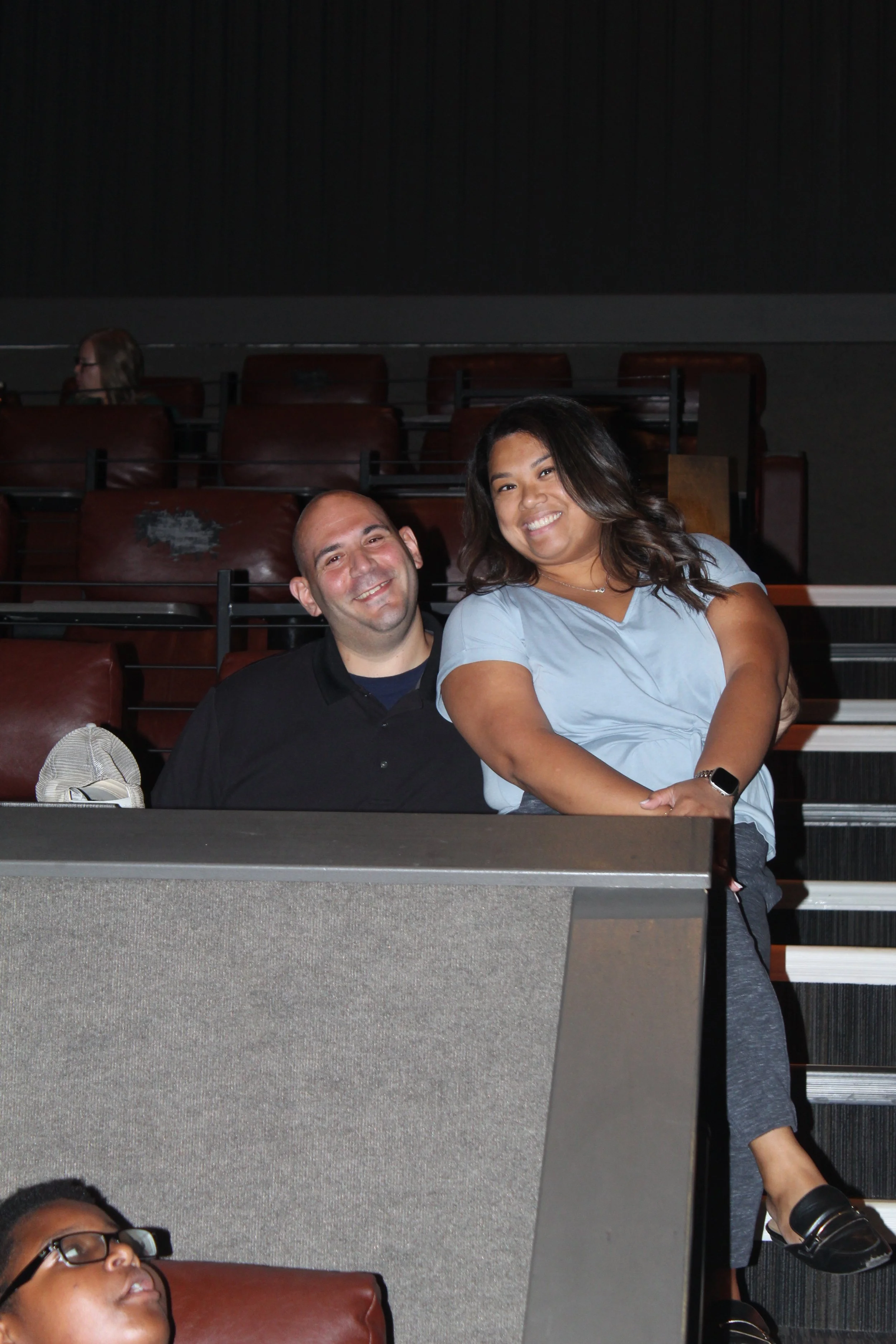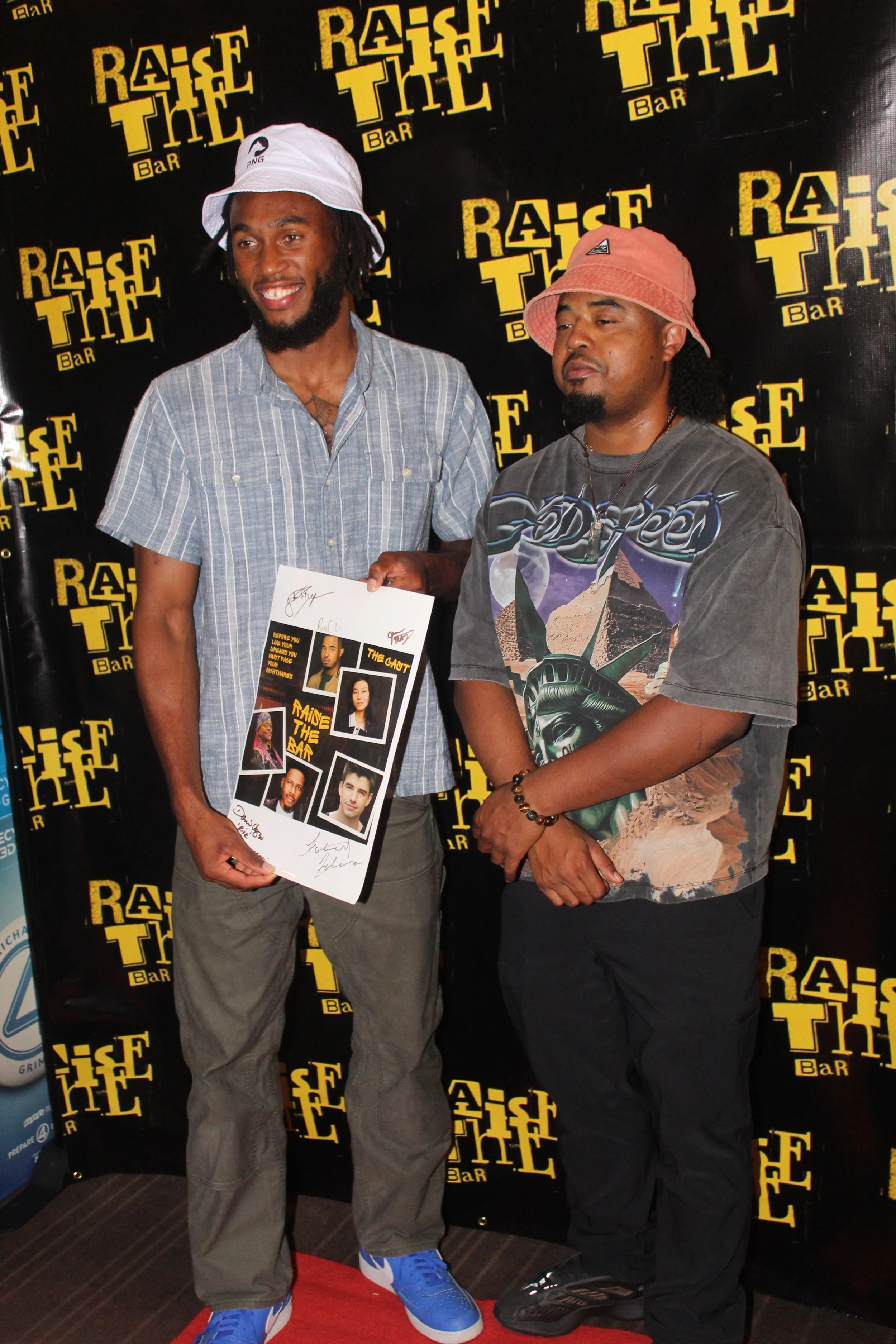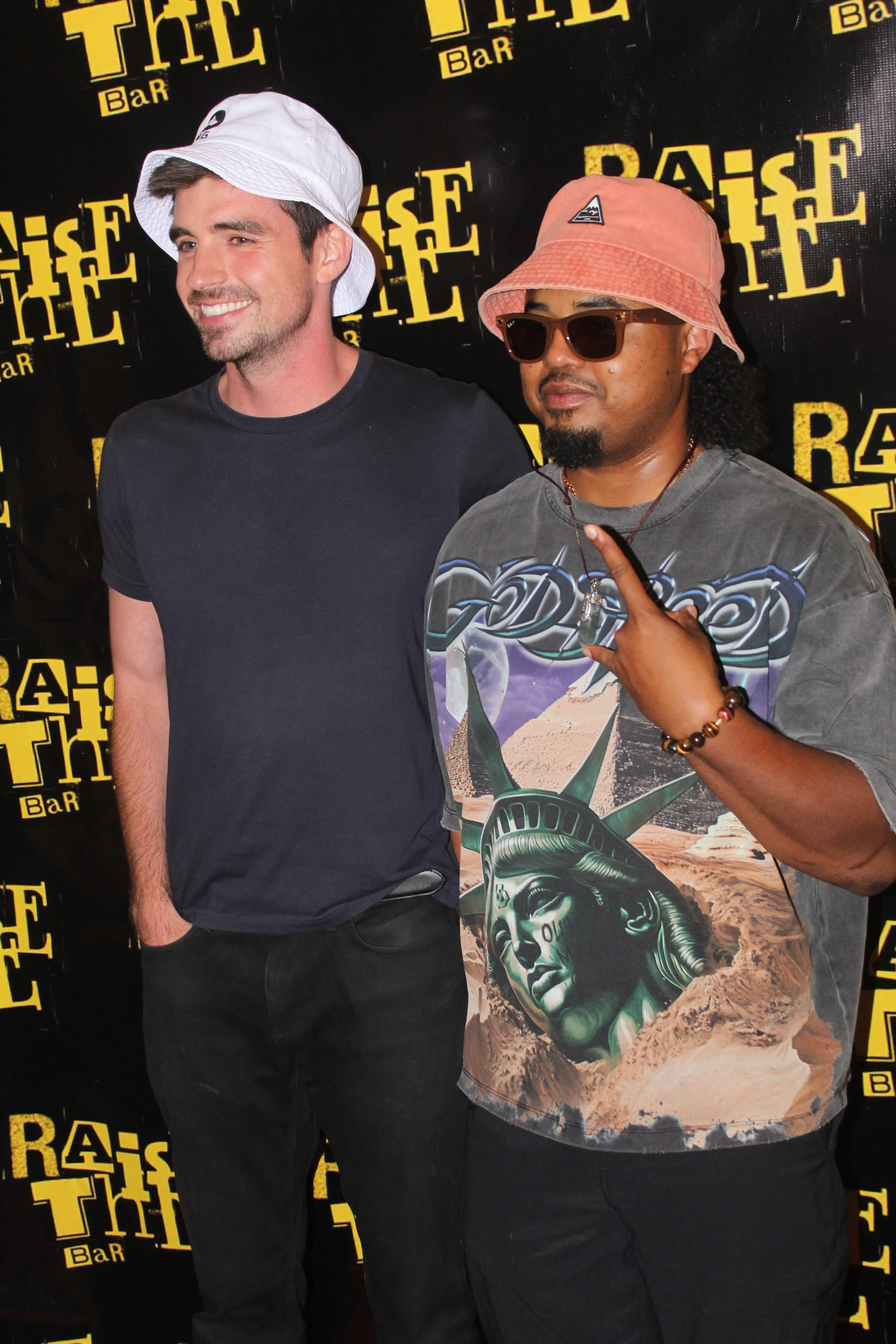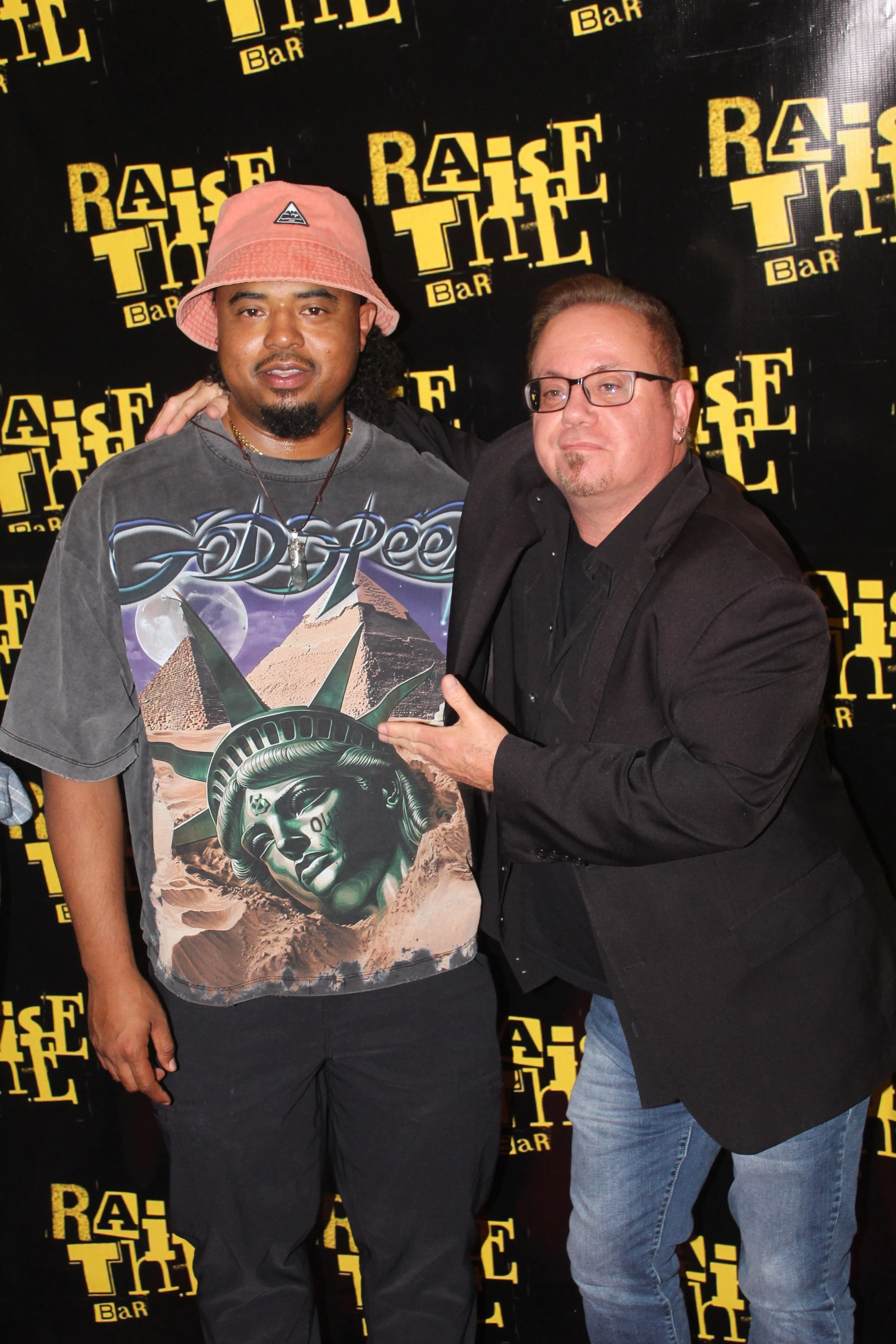Raise the Bar: Salute.
To quote Rudolf Arnheim, “Film is one of the most characteristic means of expression, and one of the most effective means of influence...and everybody plays a part in it.” The film, Raise the Bar holds true to that statement. A collaborative effort, written by Randy Washington and produced by family and friends, Raise the Bar is a triple entendre referring to battling alcoholism, elevating one’s life, and the events that follow.
The premiere, held at the Cinemark Theater located in Willowbrook Mall in Wayne, NJ, showcased the young filmmaker’s film to a full audience. Many gathered to see the vision of a man who has shared a portion of his life to the world. Family, friends, and strangers came together to witness this visionary at work, yet, before the release of this film, his origins were rooted in the music scene as the artist, Rowzen.
Rowzen discovered his passion for performance in a college acting class. There he continued his studies at the Stella Adler Acting Studio, where he landed a spot on MTV impersonating Lil Wayne, which was his first live stage performance. That spark led him to pursue a hip-hop solo career as well as earning a business administration degree from Caldwell University to better navigate the music industry. He recorded songs, shot music videos and opened for major acts like Montana of 300 and KRS-ONE.
His single, Energee, is a candid reflection on his struggles with alcoholism, inspired him to explore storytelling through film. Fully inspired, Randy then enrolled in the William Esper Studio’s 2-year acting program, allowing him to land a debut role on the movie, Ice Dealer. The experience not only sharpened his craft but also fueled his drive to create stories of his own leading him, during the actors’ and writers’ strike, to write his first short film, Raise the Bar.
And as I sit here in this theater, good seat, in a pretty decent row, I was able to experience Rowzen’s life struggles with “the drink,” among his boss, friends, and those closest to him. In this short film, his personality, drenched in alcohol, affects everyone. To his boss, he forgets where to work; to his friends, he has a blatant disregard for his life; to his girlfriend with industry ties, he rips her off; and to those closest to him, he almost kills them. And while this film is only between 25-30 minutes, this moment in time highlights, chillingly, how a person can go from bad to worse only to seek redemption at the bottom of a bottle.
Raise the Bar shows real promise as a short film, boasting an amazing soundtrack, a talented group of actors who channel their craft like seasoned headliners, and a plot that is equal parts heart, honesty, and cringe. While the story unfolds on screen, the message it leaves behind parallels stories about alcoholism and its impact on those closest to the person struggling. Although Randy is the star and we can’t take our eyes off him for a single moment, we also witness the emotional toll it takes on the co-stars. In some ways, we relate to them, because, let’s face it, behind the happiness and joy we share with friends, family, and loved ones, we all have a drunk story we’ve either experienced, heard, or observed.
For example, Karina (played by Connie S. Lee), Randy’s Girlfriend, questions him about his payment to Dez for his studio session and getting ready for an industry party and as the dialogue continues, Randy’s drunken responses to Karina plays similar to a bipolar patient going from, “Fxck that N-------” to “Okay!!! I’ll send the Zelle!!!” with Karina being a punching bag for his insults, taunts, and disrespect.
However, we do see a different side of the drunken individual. Instead of attending an AA (Alcoholics Anonymous) meeting, we see Randy attending its polar opposite. As Randy goes to his drinking therapy sessions, the magic of these gatherings come alive, especially alongside his intoxicated comrade, Kyle, played by Jack Byram. As Kyle listens and talks with Randy, we glimpse, within his drunken wisdom, that he genuinely cares for his friend as he offers careless advice that makes his words both comical and dangerous, especially to one’s liver.
Raise the Bar is also a film about redemption; however, the film’s statement doesn’t hit the way one usually wants it to. We don’t see Randy officially put down the bottle and say, “That’s it, I’m done!” No. We see Randy sticking to his usual routine, making every decision with a swig of, “the drink,” with each response becoming more and more dangerous.
As he crashes out, spiraling to the point of almost killing a family member, the chains of habit tighten, too light to be felt at first, as we see throughout the film, until the end, when they become too heavy to lift. His connection to the drink shifts from mutualistic to parasitic, as his true friends fade into the background and his friend, “the drink” takes center stage, offering the protagonist a lone dial tone in times of crisis.
Here we see Randy embodying a truth few are willing to admit: “I’m an alcoholic.” But Randy says this not as a cry for help, but as an acknowledgement of the chains his habit has created and that are now a burden. He realizes his problem; he knows the issues, despite his accumulated DUIs. Here we see Randy logically trying to understand and figure out how he can break “the drink’s” heavy chains. And within the last frame of the movie... we see him coping.
To me, Raise the Bar it isn’t just an alcohol story, it’s a journaled account of a person and the losses that come with choosing addiction over friends and family.
Respect.






















